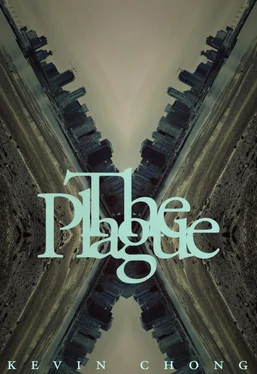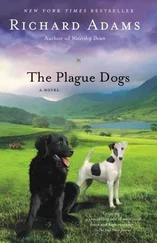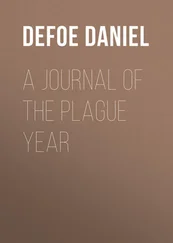“Imagine how nice this would be if we were doing it in July,” he said. “How are you faring?”
“Up and down,” she admitted.
And then she told him about a doomed relationship with someone whose violence was made worse because he’d never physically hurt her. In the rambling voicemails he’d leave in the past year, he talked about wanting to put them out of pain with the compassionate tones of a veterinarian used to reasoning with besotted dog owners. Every time she said “I,” he would say “we.” Markus told her she was pushing him away because of what happened to her own family. And while it was true she pushed people away for that reason, her friends needed to tell her that leaving him was still the right thing to do.
Tso could confide in Rieux because she was on the water, and she sat in front of him, not making eye contact. He was the gondolier she’d hired on a lark, in a town she was finished visiting. And because she was in the water, and the water knew everyone’s secrets. She stopped short of telling him about her mother and brother; she’d never even told the hospice patients about that. To give up her entire life story, she would need to be conversing with an ancient mariner.
Then she imagined Rieux plunging a needle into Markus and putting him out of her misery.
On the shore, a child in a face mask waved at her. Soon they were passing the houseboats. The woman they’d visited was on her deck, leaning against the rail. She called out something they couldn’t quite understand, something along the lines of, “I should have expected to see you.”
And yet Tso didn’t expect to see her. She was surprised to see a familiar face. Tso had been thinking about how unlikely it was that she was here, on the water. You think to yourself, who would ever do something like this? Then you think, what if I do this? Just to play a role. Then you’re passing by someone. And that person thinks, who would do something like this?
They were on the water for half an hour, tops, before Rieux needed to turn back. He admitted that paddleboarding was a test of his core strength. In the last stretch, Tso could feel the strain in his strokes. She wished she could take over.
“Shall we get back to our work?” he asked her. They had just stepped onto the dock. The water in False Creek had returned the softness to his face. The tone of his voice had changed. There had been only duty and determination in it two hours before, mustered with scalding tea on his tongue. Now he seemed to be speaking with the water under his feet. He asked his question as though it were the answer itself.
“Shall we get back to our work?” she asked back.
And so they did.
Rieux was working at the auxiliary hospital when the announcement about the vaccine came. His job here was not only monotonous, but it forced him to see suffering as a collective process. He’d become accustomed to the old and weak dying, followed by healthy adults, and finally children with faces aged by pain. There were categories of patients, types of death. He needed to tell himself to speak to each one as though he would see them the next day. He administered the ineffective antibiotics as if he was pretending to be a child waving a magic wand.
Orla Castello asked him to be one of the doctors standing in the background on camera when she delivered the news about the vaccine. Rieux took his break early, disinfected himself, changed into his street clothes, and stepped outside. A communications officer from the Coastal Health Authority asked him to wear an ill-fitting set of scrubs.
“Thanks for being an extra in our production,” Castello told him. “I’m just the warm-up act. Our headliner is waiting in the wings. We need star power for this.”
A small crowd of news media had been assembled, though most of the news figures here looked at Castello skeptically. Not even Siddhu’s nerd-chic employer had bothered to bring his Polaroid camera. If the vaccine had been released a month earlier, there would have been spontaneous street parties. In that time, though, Castello had made announcements about positive but temporary shifts in infection and mortality rates. Her office had issued press releases that did nothing but reiterate the devotion of the city’s medical staff. Any residual excitement about the vaccine had been eaten away by timed leaks about its imminence.
As promised, Castello’s prepared statement about the vaccine was brief, with no time given for questions. She introduced another speaker to talk about the city’s plan to encourage vaccination.
It took Rieux a split second to recognize the mayor when he emerged from behind a door. There were gasps among the news media and some of the medical staff in their scrubs when Parsons made this first public appearance since the scandal, after his poorly received interview with Siddhu. Photos of Parsons had been posted on social media from time to time. He had grown a beard and started to wear a baseball cap. In some photos, he’d looked gaunt. Now, he looked like a close replica of the version of himself that had won the election.
According to Parsons, the vaccine would be freely distributed not only at hospitals, but also at community centres and libraries. Under Canadian law, immunization was not mandatory. An awareness campaign was being launched with print, internet, and billboard advertising. Door-to-door canvassing was an option still under consideration.
A question period followed. One reporter asked him whether he would go through with his anti-poverty measures. He said he would risk his remaining political capital on it. He refused to answer a single question about the scandal but shook his head briskly and said, “I’ve apologized to the city in a press release and to my family in private, but I’ll also do it now. I am sorry. The thing I’ve learned through my own personal downfall is how little it matters in a larger context. I hid in shame for the first months of this disease because of these reports. I should have snapped out of it earlier and helped. I should have used my power and privilege to help the people of Vancouver instead of wallowing in my own misery. Suffering is not equally distributed. Some people—namely, the oppressed—have suffered more than others. And I will fight for them. Next question.”
Castello leaned over to Rieux and spoke in a whisper. “It was his idea to do this press conference,” she said.
“The people who hate him will continue to feel that way,” Rieux said. “And the people who lost faith in him—do they care?”
“He wants to talk to you—about what, I can’t tell you. Do you have a minute?”
Rieux had to wait while Romeo Parsons offered his cheekbones for selfies. Even after his misconduct, he was still wanted in photos. The mayor noticed Rieux’s impatience and made his last photo quick. He then pulled the doctor aside and thanked him for his efforts with the Sanitation League. “I want to be a volunteer,” he told Rieux, then immediately added, “and this isn’t a publicity stunt.”
Rieux did not habitually turn away volunteers, but he felt a strong urge to break from this practice now. “I want to like you,” he said. “And I didn’t vote for the other guy. I didn’t vote at all.” Parsons began to speak, but Rieux held up his hand. “This is not about your personal business,” the doctor told him. “It’s because I don’t think your idea of suffering is grounded in reality.” Rieux added that he believed the mayor’s intentions were good but that his remarks betrayed an intellectual superficiality. “It’s hard for me to explain,” he said. “Let me show you.”
Before he took Parsons into the ward, they had to change into hazmat suits. Parsons stepped into the gear tentatively. He seemed more worried about leaving his handmade Italian shoes in the change area than what he would see next.
Читать дальше












